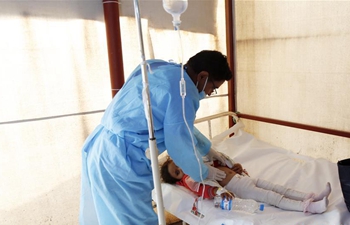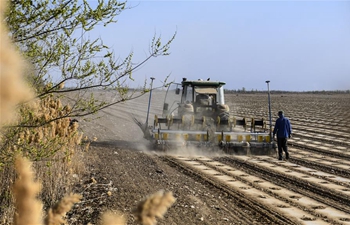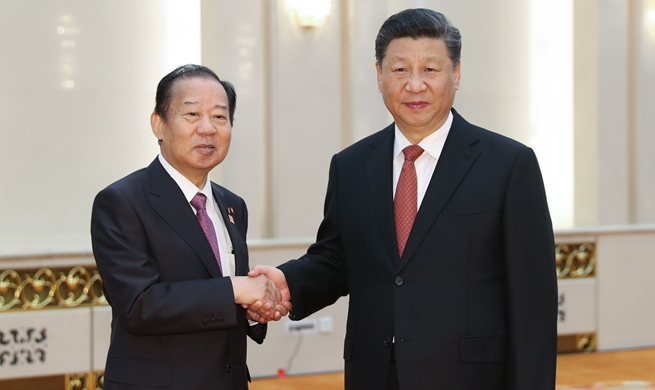LA PAZ, April 24 (Xinhua) -- Bolivia's gross domestic product (GDP) grew 4.22 percent in 2018, driven by an increase in non-extractive labor-intensive industries and domestic demand, according to data released on Wednesday by the National Statistics Institute (INE).
Last year's economic growth is a slight improvement over 2017, when GDP grew 4.20 percent.
"The data shows the stability and growth of the Bolivian economy are primarily due to the dynamism of the domestic market," Santiago Farjat, director of INE, said at a press conference in La Paz.
The extractive sectors (oil, gas and mining), which rely the most on foreign demand, have shrunk in recent years as a result of reduced demand from Bolivia's main trading partners.
But other sectors have flourished, including agricultural activity, which grew 6.91 percent, public services (6.78 percent), manufacturing (5.52 percent) and financial institutions (5.30 percent).
In 2018, agriculture was the sector with the highest growth and the greatest impact on GDP, especially sugar cane cultivation, which grew 22.04 percent driven by the manufacturing sector's demand for sugar and alcohol.
According to Farjat, an additional Christmas bonus for government workers had a positive impact on domestic spending.
Meanwhile, the manufacturing sector maintained its 5.52 percent growth in 2018.
Crude oil and natural gas saw negative growth of 7.82 percent due to the drop in demand of natural gas from Argentina and Brazil, which dampened production.

















